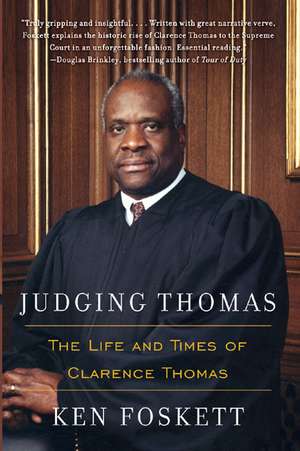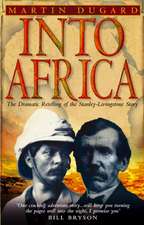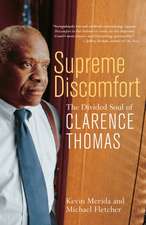Judging Thomas: The Life and Times of Clarence Thomas
Autor Ken Fosketten Limba Engleză Paperback – 25 apr 2005
Judging Thomas tells the remarkable story of Clarence Thomas's improbable journey from hardscrabble beginnings in the segregated South to the loftiest court in the land. With objectivity and balance, author Ken Foskett chronicles Thomas's contempt for upper-crust blacks who snubbed his uneducated, working-class roots; his flirtation with the priesthood and, later, Black Power; the resentment that fueled his opposition to affirmative action; the conservative beliefs that ultimately led him to the Supreme Court steps; and the inner resilience that propelled him through the doors.
Based on interviews with Thomas himself, fellow justices, family members, and hundreds of friends and associates, Judging Thomas skillfully unravels perhaps the most complex, controversial, and powerful public figure in America today.
Preț: 85.90 lei
Nou
16.44€ • 17.20$ • 13.68£
Carte disponibilă
Livrare economică 10-24 martie
Livrare express 21-27 februarie pentru 23.09 lei
Specificații
ISBN-10: 0060527226
Pagini: 368
Dimensiuni: 135 x 203 x 21 mm
Greutate: 0.32 kg
Ediția:Reprint
Editura: HarperCollins Publishers
Colecția Harper Paperbacks
Notă biografică
Ken Foskett, an investigative reporter for the Atlanta Journal-Constitution, covered legal affairs and state politics before serving as the newspaper's Washington correspondent from 1996 to 2001. Prior to joining the Journal-Constitution in 1989, Foskett worked for three years in southern Africa for Save the Children. A graduate of Yale and the Columbia Graduate School of Journalism, he is married and lives with his wife and son in Georgia.
For his biography of Justice Thomas, Foskett interviewed more than 300 people from every phase of Thomas' life. Justice Thomas sat for interviews and is quoted in the book, along with Justice Antonin Scalia and Ruth Bader Ginsburg, two of his closest colleagues. Foskett interviewed Thomas' family members, schoolmates, college classmates and numerous officials from the Reagan and Bush administrations. ?Part of the reason I wanted to write about Justice Thomas is that most people with first hand knowledge of his life were around to talk about him,? says Foskett. ?They provided details, nuance and texture that isn't always available to biographers relying on letters, personal papers or secondary sources.?











